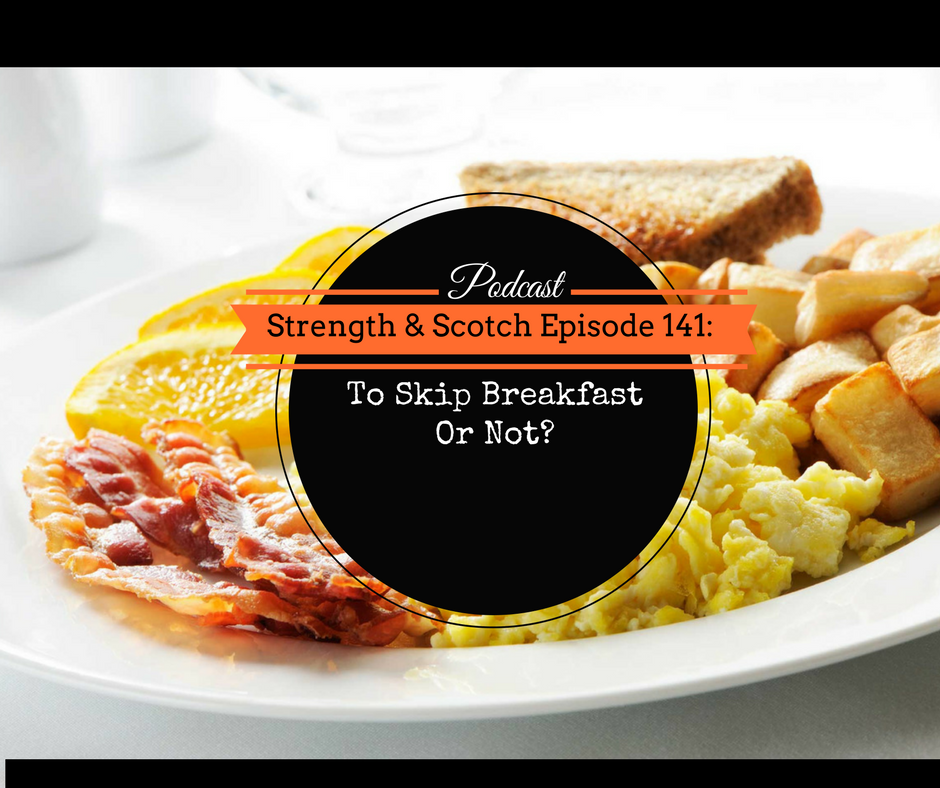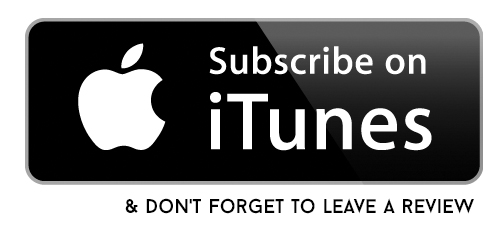SS 141 – To Skip Breakfast or Not?
Episode 141 Show Notes
This week, Grant and Heavey cover a topic we often hear a lot of conflicting information about – breakfast. Some say breakfast is the most important meal of the day. Other say skip breakfast so you consume less calories throughout the day. So which is it? Listen in as they comb through scientific literature to shed light on this. Plus, let’s find out whether compressions tights really work or not.
[03:00] To Wear or Not to Wear Compression Shorts
Grant mentions this article about a Nike-funded study on compression tights conducted by the Ohio State University. And he recalls how Heavey always talks about being careful with the studies that are funded by those with a vested interested in their outcome. Interestingly, this study is funded by Nike that makes compression shorts among other things. However, the study suggests that these items do not work.
According to Nike, the idea behind compression tights is they greatly reduce muscle vibration which in turn reduces muscle fatigue. When the muscle vibrates, it induces a contraction that uses energy. So the theory is that the less the muscle vibrates, the less fatigue. The result of the study is that runners performed exactly the same with and without compression tights though.
[05:05] Heavey Wears ‘Em
Although he hasn’t really looked at much research around compression clothing, he does wear compression shorts when he lifts, primarily due to comfort and the ability to move well in the gym.
Heavey talks about this internship he did where he worked with some NFL combined guys. On his first day, he did all the work and and everybody was gone for the day. Before driving home, he decided to get in some training. He set up on a platform in the middle of the gym. He forgot to bring his workout clothes so he was just wearing his normal boxers and regular athletic shorts. So he did a squat and his boxer shorts just split open in the back straight right down the middle. And this is why he doesn’t work out in boxer shorts anymore.
[08:20] Props to Nike
Although this is not necessarily a great look for Nike, they still had this study published so props to them, says Heavey. It’s not an uncommon scenario where the sponsor of the study can squash it and prevent the results from coming out to the public. #respect
Heavey feels this gives more weight to other studies Nike has sponsored, which means they are legitimately trying to see if their products are making a difference or not.
Meanwhile, the Nike spokesperson said, “Our goal is to better understand all aspects of human performance. The effect of compression products on performance is one of many areas that we study and an area that is often studied by other researchers. The Ohio State University study produced an interesting data point that delivered an additional perspective on the study of compression tights. Our role is to take athlete feedback and data from studies like this to develop world-class products for athletes at every level.”
[10:00] Let’s Talk Breakfast!
There’s this breakfast tension going on with Grant and Heavey. Grant rarely eats breakfast. He thinks it’s a dumb meal and he hates the idea that people eat breakfast food for dinner. Heavey, on the other hand, rarely misses breakfast.
Heavey enjoys eating breakfast for breakfast. Coming from his perspective, breakfast is the best. But we hear a lot of conflicting information. Is breakfast the most important meal of the day? Or you can’t be your best if you don’t eat a good breakfast. These kinds of messages have been ingrained into us. So Heavey decided to dig into scientific literature to shed light on this.
[11:18] A Jump Start to Metabolism
The first thing that usually comes to mind when people think of breakfast is that it gets your metabolism going for the day. It gets you burning calories. But it turns out that studies in both lean and overweight individuals have shown no change in resting metabolic rate when breakfast is skipped. Based on this research, there is no effect on your metabolism by the simple act of eating breakfast.
[12:45] Exercising Without Breakfast
Heavey mentions this notion that if you work out fasted, meaning that you work out before you’ve eaten breakfast for the day, it will increase your fat-burning for the rest of the day. A little bit of research shows that fat oxidation increases in the morning after exercise when you’ve fasted compared to when you’ve eaten breakfast. But followup research looked at fat oxidation over the entire day and found that it equalized. The people that had increased oxidation in the morning by skipping breakfast and doing exercise had decreased this throughout the rest of the day. And we really don’t know the actual mechanism for what drives this.
What you should be concerned about though is that if you work out fasted, it’s important to consume at least 20 grams of protein within a couple of hours to help preserve your muscle mass.
[14:44] The Idea of Fasting
Heavey explains there’s this growing idea of fasting where a lot of people do intermittent fasting. They will not eat until lunch. But if they’re training in the morning, that could be a problem for them. They could actually be impairing their ability to add muscle so they end up losing muscle mass.
Also, working out fasted does actually seem to affect peak performance. If you’re going for a jog in the morning, that’s not a big deal. But if you need to get a new record in your mile time, that’s not a great idea.
Grant would rather skip them all instead – breakfast and working out. LOL!
[16:05] Effect on Weight Loss
Some people cite the idea of skipping breakfast so they can consume less throughout the day. Heavey can relate to this back when he was doing intermittent fasting some six or seven years ago. He was trying to cram in a massive amount of calories within this eight-hour window of eating and he found it difficult. So he can see how people might think that skipping breakfast leads to reduced consumption throughout the rest of the day.
What Grant has noticed is that he ended up being so hungry at lunchtime that he consciously make decisions to go eat more at lunch. He is hungry, he wants more food. So he ends up eating more calories at lunch.
[18:00] Reduced Food Intake Throughout the Day
Actual clinical trials have shown a reduced intake later in the day when you eat breakfast and others have shown no difference. That said, the clinical trials are really mixed from little reduction to no difference at all.
Another study looked at 49 women that didn’t already habitually eat breakfast. They had half of them eat breakfast during the study and then another half of them continued to skip. In the group that added breakfast into their routine, they actually ended up gaining 1.7 pounds and eating a few hundred extra calories per day.
Heavey thinks that it’s not good to go against our natural inclinations. But the individual responses are going to vary. Also, he thinks that a lot of times, the research doesn’t really have the best breakfast. What is the implication between having no breakfast versus having cornflakes versus having some bacon and egg? This is what Heavey really wants to see.
[20:05] Does the Type of Breakfast Matter?
A randomized trial was done in Missouri back in 2015 with three different groups. They randomly assigned to 57 breakfast-skipping teenagers to either a cereal-based breakfast with 13 grams of protein, an egg and beef-rich breakfast with 35 grams of protein, and the third group just continued skipping breakfast.
Out of those groups, they found that the egg and beef breakfast led to voluntary reductions in daily food intake and reported daily hunger. It prevented fat mass gains over the twelve-week study as well.
Grant explains there are so many variables in a lot of this research because what is really the composition of that breakfast or are they exercising. Nevertheless, maybe you just have to go with your natural inclination.
[21:08] What Heavey Recommends
Heavey recommends eating breakfast to people he works with because he thinks eating a protein-rich breakfast like they did in the study is very helpful for setting satiety and hormone-signaling for the rest of the day. He found a lot of benefits with this when working with clients but if they’re just adamant about having no breakfast then he tries to work around that.
Heavey then concludes that there is mixed research out there so you can’t really use it to say whether or not eating breakfast or skipping breakfast is the most beneficial thing for your specific case.
[22:05] Why Grant Hates Breakfast
Grant loves food, no doubt about that. And there are three things he loves more than food. Let’s skip the first one but the other two would be scotch and sleep. He basically has to be at work at 8 am which he doesn’t like. So any minute he gets to have in bed sleeping before he leaves, the happier he is. Waking up 15-30 minutes earlier to come downstairs, cook, eat, and clean breakfast is not worth it for him.
Heavey’s wife, Nicole, suggested Grant make hard-boiled eggs. And he did make about a dozen of them but he got sick of it after three or four days. He found it boring and not yummy. In short, he finds preparing breakfast a pain in the ass.
[26:35] Thanks for the Awesome Review!
Grant and Heavey received an awesome iTunes review for the show. Shout out to Blah Jake Blah! We welcome ratings and reviews for the show because it’s a very helpful way for us to get the word out so the show continues to grow.
Links:
Nike-Funded Study Shows Compression Tights Are Basically Useless

Check out the gear page for everything Strength & Scotch! You’ll find a listing of all the supplements and other programs we’ve discussed on the show as well as our killer t-shirts!

